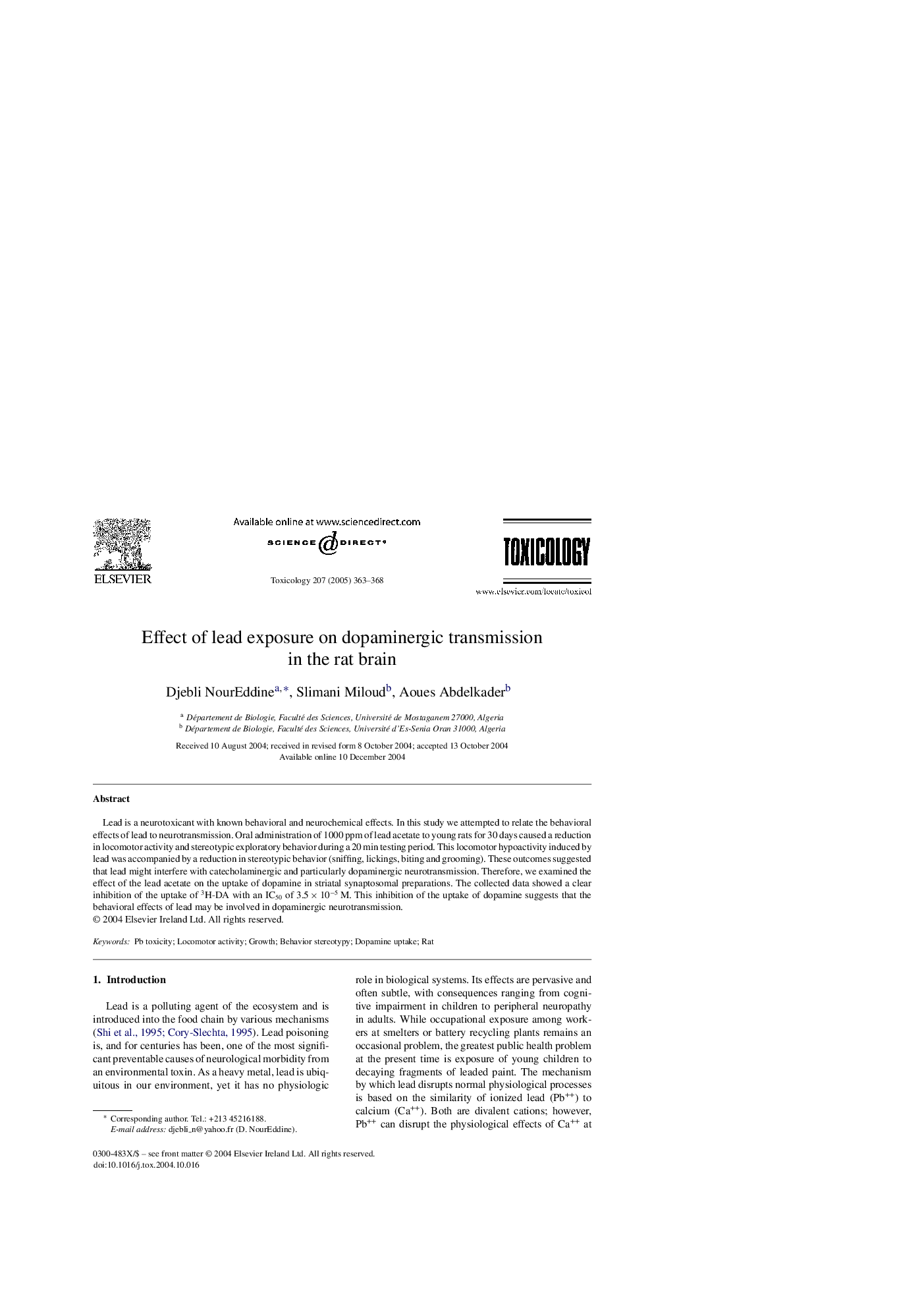| Article ID | Journal | Published Year | Pages | File Type |
|---|---|---|---|---|
| 9034688 | Toxicology | 2005 | 6 Pages |
Abstract
Lead is a neurotoxicant with known behavioral and neurochemical effects. In this study we attempted to relate the behavioral effects of lead to neurotransmission. Oral administration of 1000Â ppm of lead acetate to young rats for 30 days caused a reduction in locomotor activity and stereotypic exploratory behavior during a 20Â min testing period. This locomotor hypoactivity induced by lead was accompanied by a reduction in stereotypic behavior (sniffing, lickings, biting and grooming). These outcomes suggested that lead might interfere with catecholaminergic and particularly dopaminergic neurotransmission. Therefore, we examined the effect of the lead acetate on the uptake of dopamine in striatal synaptosomal preparations. The collected data showed a clear inhibition of the uptake of 3H-DA with an IC50 of 3.5Â ÃÂ 10â5Â M. This inhibition of the uptake of dopamine suggests that the behavioral effects of lead may be involved in dopaminergic neurotransmission.
Related Topics
Life Sciences
Environmental Science
Health, Toxicology and Mutagenesis
Authors
Djebli NourEddine, Slimani Miloud, Aoues Abdelkader,
